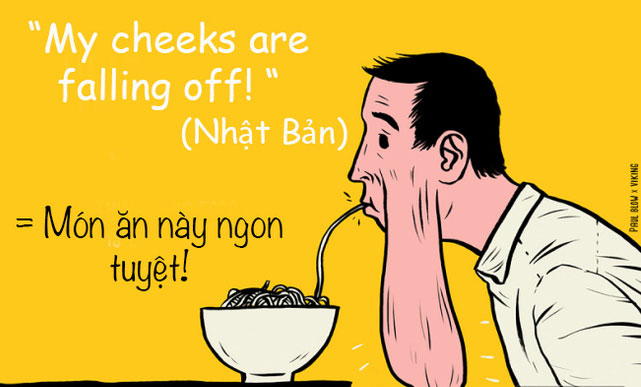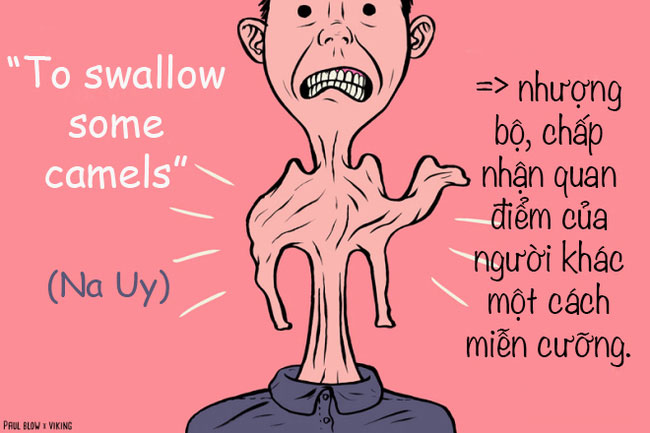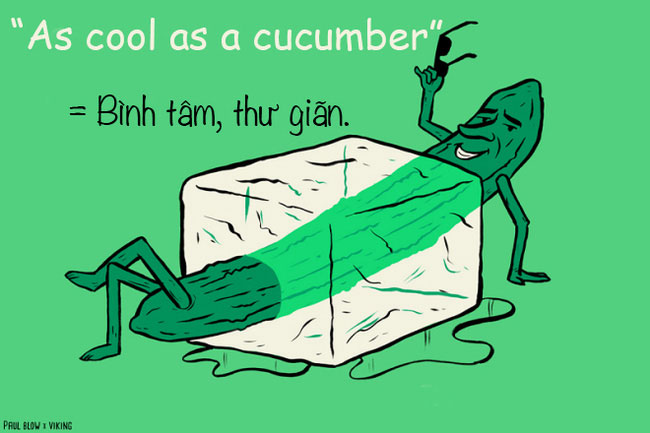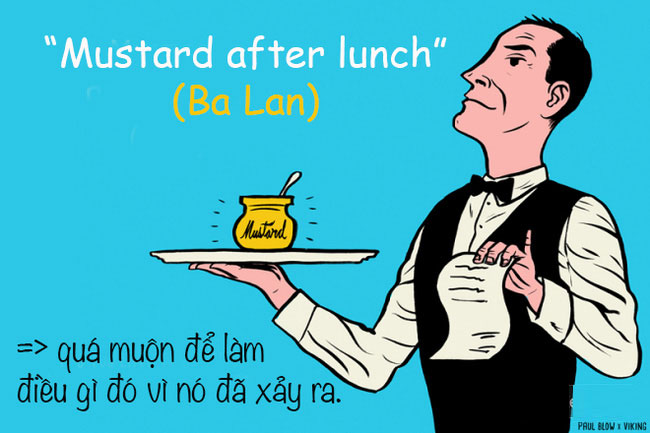'Laughing' with English idioms in English
You will both learn and learn with extremely close English phrases in life.
Award-winning illustrator, Paul Blow has many creative and witty ideas about the literal expression of common idiomatic phrases.
With a new perspective, Paul Blow has turned the usual familiar and cute words into cute and funny. Surely you will laugh and remember this phrase for a long time!

In French, the phrase "When chickens have teeth" is used to refer to something that can never happen.

When Japanese people want to compliment "this dish is delicious" , they often use the phrase "My cheeks are falling off - my cheeks are falling".

If you want to talk about concessions, accept others' opinions reluctantly, the Norwegians will use the phrase "swallow a few camels."

The phrase "As cool as a cucumber - Cool like a cucumber " is used with the meaning of a relaxed, calm, happy state.

In Italian, the phrase "Not all donuts (donut) has holes" is used in the sense that not always, everything goes the way you want.

The phrase "mustard after lunch" was used by the Poles meaning it was too late to do something because it had already happened.

Icelanders often use the phrase "Dried grape at the end of the sausage" to refer to the surprise that appears at the end.

The phrase "to tie a bear to someone" in German means to deceive someone.

In Swedish, the phrase "Surfing on a shrimp sandwich" is used to mean you have an easy life.
- Don't die because ... laugh
- Just laugh and twitch
- Laughing is also infected
- Here are 10 English words that are hard to pronounce the earth
- Test English proficiency with WordBanker 1.0
- These are 6 very simple English words that are mispronounced by native speakers
- The sign helps to recognize
- Strangely the boy laughed and died
- Strange disease: The boy could not help laughing
- The 11-year-old boy doesn't stop laughing
- Video: English words become humorous in another language
- Laughing is sometimes not as good as we think
 Betray
Betray The most amazing balancing rocks in the world
The most amazing balancing rocks in the world Leaning with a bunch of funny humor on March 8
Leaning with a bunch of funny humor on March 8 Why do ducklings often swim in a row after the mother duck?
Why do ducklings often swim in a row after the mother duck?